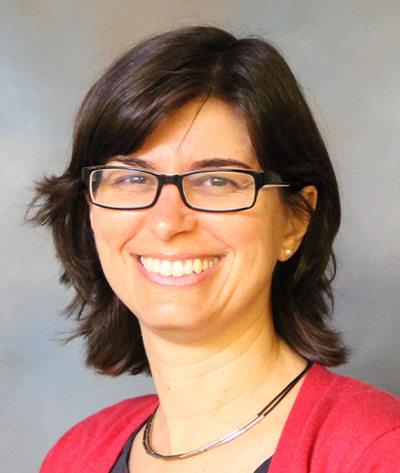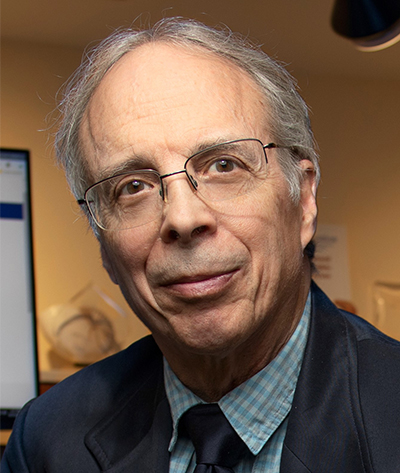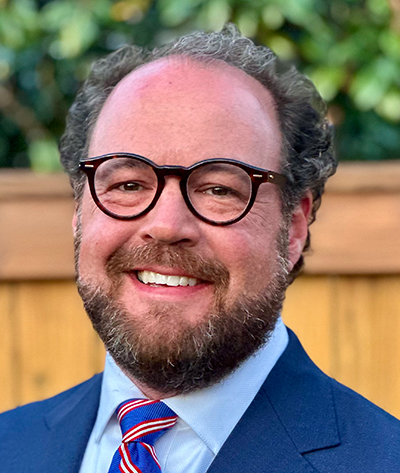
SOT FDA Colloquia on Emerging Toxicological Science: Challenges in Food and Ingredient Safety
Current State of the Science: Toxicology of Cannabidiol and Other Cannabinoids
May 8, 2024 • Webcast • 9:00 AM–12:45 PM Eastern US, UTC -4
Co-Chairs: Luísa Camacho, PhD, US FDA NCTR, and Barbara Kaplan, PhD, Mississippi State University
The Society of Toxicology (SOT) in conjunction with the US FDA Center for Food Safety and Applied Nutrition (CFSAN) have partnered to provide this colloquia series. The colloquia present scientific information that is high-quality, cutting-edge, future-oriented toxicological science to provide a well-grounded foundation to inform the work of US FDA employees. These webcasts are open to the public at no charge. These sessions are not a public forum for discussion of toxicology regulatory issues.
Webcast RegistrationFDA employees are encouraged to use their FDA email address when they register and when they log into the colloquium.

Cannabidiol (CBD) is a psychoactive, non-intoxicating cannabinoid found in marijuana and hemp. Following the passage of the 2018 Farm Bill, which legalized the production of hemp in the US, CBD has become widely available and used in a myriad of consumer products. CBD has been reported to treat insomnia, anxiety, pain, and inflammation and other immune diseases; however, thus far only a purified form of CBD is marketed in the US as an FDA-approved drug (Epidiolex), for the treatment of refractory epilepsies in children. Given the widespread use of CBD-containing products, it is critical to understand both its pharmacological and toxicological effects.
This colloquium will describe CBD in the context of marijuana, hemp, and other minor cannabinoids, summarize potential targets organs/systems, and provide an overview of the pharmacokinetics and potential liver toxicity and drug-drug interactions of CBD. It will then focus on two areas of action or potential toxicity: the central nervous system and the reproductive system. The final presentation will review potential exposures and biological activities of other minor cannabinoids. The colloquium will conclude with a panel discussion on these and other active areas of CBD research.
| 9:00 AM–9:10 AM | Welcome and Opening Remarks |
| 9:10 AM–9:40 AM | Cannabidiol Overview: Clinical Considerations, Regulatory Status, and Marketplace Concerns |
| 9:40 am‒10:10 am | Pharmacokinetics of Cannabidiol |
| 10:10 am‒10:40 am | Central Nervous System Effects of Cannabidiol |
| 10:40 AM–11:00 AM | Break |
| 11:00 AM–11:30 AM | Effects of Cannabidiol on the Male Reproductive System |
| 11:30 AM–12:00 Noon | Beyond CBD: Exposure, Chemistry, and Toxicity of “Minor” Cannabinoids |
| 12:00 Noon–12:45 PM |
Roundtable Discussion |
SOT events adhere to the Society’s general privacy policy and disclaimers; participants commit to the SOT Code of Conduct.
Please note that the Zoom service used allows audio and other information sent during the session to be recorded. By registering for this session, you automatically consent to such recordings. The recording of the event is posted to the SOT website for public access after the event. If you do not consent to being recorded, discuss your concerns with the host or do not join the session.
For registration questions contact Jim Dailey.

Luísa Camacho, PhD
Luísa Camacho is the Deputy Director of the Division of Biochemical Toxicology at the US Food and Drug Administration’s National Center for Toxicological Research (NCTR). Her research focuses on the conduct of animal studies to assess the pharmacokinetics and toxicity of products of interest to the FDA. She conducts these studies in close collaboration with colleagues from FDA product centers. A particular emphasis has been on toxicological studies that include exposures during the perinatal period of life. She complements toxicity assessments with molecular endpoints. Compounds evaluated include bisphenol A, di(2-ethylhexyl) phthalate, and cannabidiol. More recently, she has expanded her research efforts to evaluate the performance of in vitro tests using alternative skin models to predict human dermal absorption and irritation. Dr. Camacho has over 40 peer-reviewed publications and has served as an expert member in multiple working groups, including for the International Agency for Research on Cancer. Dr. Camacho is the Pharmacology, Toxicology, Pharmaceutical Sciences section editor for the journal Data in Brief and served as the Editor-in-Chief for the Journal of Environmental Science and Health, Part C–Toxicology and Carcinogenesis.
Dr. Camacho received her PhD in Cell Biology from the University of Lisbon in Portugal and conducted postdoctoral research at the University of Durham and the University of Oxford in the United Kingdom before joining NCTR in 2007.

Barbara L. F. Kaplan, PhD
Barbara Kaplan is an associate professor in the Center for Environmental Health Sciences, College of Veterinary Medicine, at Mississippi State University. She also co-directs the veterinary summer research experience program, which provides research experiences for first year veterinary students. Her laboratory focuses on effects and mechanisms by which drugs and chemicals alter immune responses. Her studies on aryl hydrocarbon receptor ligands and cannabinoids has resulted in more than 70 peer-reviewed publications. She has also made contributions to the immunotoxicity chapters in Casarett and Doull’s Toxicology, Patty’s Toxicology, and Comprehensive Toxicology.
Kaplan received a Doctor of Philosophy degree from Michigan State University in pharmacology and toxicology. She conducted postdoctoral research at the University of Chicago in tumor immunology.

Renata Mazaro-Costa, PhD
Renata Mazaro-Costa is a full professor in the Department of Pharmacology at the Institute of Biological Sciences of the Federal University of Goiás (ICB-UFG), Brazil. Her laboratory focuses on studies in male reproductive toxicology. However, she has also developed projects aiming to search for molecules in native species of the Brazilian Cerrado for male contraceptive purposes. The studies are in vivo, using rodent models. Her work has resulted in over 40 articles. She has been a member of various committees and commissions, serving from 2018-2020 as coordinator of the National Council for Control of Animal Use in Experimentation of the Ministry of Science and Technology. She has also served as coordinator of the Biological Sciences course at the Institute of Biological Sciences of ICB-UFG. She was the founder and tutor of the Biological Sciences group of the Tutorial Education Program (PET) from 2010-2020.
She has a Bachelor in Biological Sciences, a PhD in Physiology from Medical School of the University of São Paulo, and completed her postdoctoral studies in Psychobiology at the Federal University of São Paulo.

Ethan Russo, MD
Ethan Russo is a board-certified child and adult neurologist (1987), psychopharmacologist, and Founder/CEO of CReDO Science. He is also Chief Medical Officer for Andira Pharmaceuticals, Senior Medical Advisor for Canurta, and Medical Director of Breeder’s Best.
He was Director of research and development for the International Cannabis and Cannabinoids Institute (2017-19), Medical Director of PHYTECS (2015-2017), and from 2003-2014, Senior Medical Advisor, medical monitor/study physician to GW Pharmaceuticals for numerous Phase I-III clinical trials of Sativex and Epidiolex.
He was a clinical neurologist in Missoula, Montana, for 20 years. He has held faculty appointments as Adjunct Associate Professor, Department of Pharmaceutical Sciences, University of Montana, and Clinical Assistant Professor, University of Washington School of Medicine. He is author/editor of seven books and has published over than 60 peer-reviewed articles.
He is a graduate of the University of Pennsylvania (1973, Psychology), University of Massachusetts Medical School (1978), and trained in pediatrics (Phoenix Hospitals Affiliated Pediatrics Program, 1978-1980) and pediatric and adult neurology at the University of Washington (1980-1983).

Michael Santillo, PhD
Michael Santillo is a research chemist at the Center for Food Safety and Applied Nutrition (CFSAN) within the US Food and Drug Administration (FDA). For the past 13 years at FDA, Dr. Santillo has led or participated in numerous toxicology research projects involving in vitro or in silico methods. Currently, Dr. Santillo is applying a suite of in silico tools for assessing molecular structural similarity, metabolites, and predicting chemical-target binding to evaluate chemicals associated with foods and dietary supplements. Aside from his role as a research scientist, Dr. Santillo also served as a regulatory review scientist on a temporary basis, assessing the safety of food contact substances and new dietary ingredients in premarket notifications. In collaboration with other partners in the federal government, he co-leads the assay evaluation and screening team for Tox21, a research consortium focused on screening thousands of chemicals by high-throughput in vitro methods. He served on editorial boards for the Journal of Pharmacological and Toxicological Methods and SLAS Technology. Before joining FDA, Dr. Santillo received a PhD in chemistry from Pennsylvania State University, where he developed microfluidic devices for cellular assays.

Ryan Vandrey, PhD
Ryan Vandrey is an experimental psychologist with degrees from the University of Delaware (BA) and University of Vermont (PhD). He is currently a Professor at the Johns Hopkins University Behavioral Pharmacology Research Unit. His research focuses primarily on the impact of route of administration, dose, and chemical composition of cannabis products on resultant drug effects and pharmacokinetics. In addition, Dr. Vandrey has been involved with a broad range of studies related to the risks and benefits of medicinal cannabis use, cannabis-drug interactions, the effects of cannabis use on sleep, cannabis withdrawal and the treatment of Cannabis Use Disorder, cannabis product testing, and developing measures of cannabis use behavior.

Robert Welch, PharmD
Robert Welch is the Director of the National Center for Cannabis Research and Education (NCCRE) and Research Associate Professor in the Research Institute of Pharmaceutical Sciences at the University of Mississippi (UM). Since joining UM in April of 2023, he has worked closely with cannabinoid researchers and educators at the school on various projects to establish the new NCCRE in the cannabis space. He has partnered with the Mississippi Department of Health, who oversees the Mississippi Medical Cannabis Program, to address questions and issues arising from all relevant stakeholders involved in the program (clinicians, cultivators, dispensary workers, law enforcement, advocacy groups, etc.). Working with Mississippi legislators, he has been active in elucidating a solution to the issue of unregulated, Intoxicating Hemp-Derived Cannabinoids which have proven to be potentially harmful to consumers and are being sold across the state in many vape stores and convenience stores. Previously, he worked for GW Pharmaceuticals from 2017-2023. During that time, he helped develop clinical trial protocols with cannabidiol, working with large institutions and epilepsy centers, such as University of Alabama Birmingham and Le Bonheur Children’s Hospital, which helped garner FDA approval for Epidiolex (cannabidiol oral solution), the first and only FDA-approved plant-based cannabinoid medicine. Additionally, he educated medical professionals, providers, payer groups, pharmacists, and advocacy organizations on the science of cannabinoids.
He completed undergraduate coursework at the University of Mississippi and obtained his PharmD from the UM School of Pharmacy in 2002. His pharmacy practice residency was at North Mississippi Medical Center.
- David C. Dorman, DVM, PhD, DABT, DABVT, ATS, Colloquium Series Chair, North Carolina State University, Raleigh, NC
- Jason R. Richardson, PhD, DABT, ATS, Colloquium Series Co-chair, University of Georgia, Athens, GA
- Jason L. Aungst, PhD, FDA Liaison, US FDA, College Park, MD
- Omari Bandele, PhD, US FDA, Rockville, MD
- Suzanne C. Fitzpatrick, PhD, DABT, US FDA, College Park, MD
- Esther M. Haugabrooks, PhD, The Coca-Cola Company, Atlanta, GA
- Rayetta Henderson, PhD, ToxStrategies Inc., Katy, TX
- Willie McKinney, PhD, DABT, McKinney Regulatory Science Advisors, LLC, Henrico, VA
- Jeffrey J. Yourick, PhD, DABT, ATS, US FDA, Laurel, MD
- Christine Perdan Curran, PhD, 2021-2023 Council Contact, Northern Kentucky University, Highland Heights, KY
- Chidozie Amuzie, Johnson and Johnson, Toronto, Canada, 2023-2024 Council Contact
- Betty Eidemiller, PhD, SOT Staff Liaison, Reston, VA




 ToXchange
ToXchange